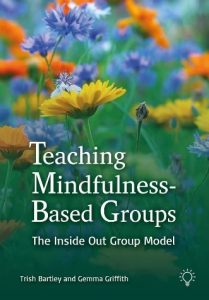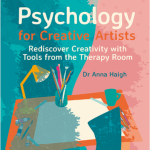Teaching Mindfulness-Based Groups: The Inside Out Group Model

Briefly:
Mindfulness-based programs were designed to be taught in groups, yet there is little or no information on how to work with the potential of a group to enhance the learning of participants. Based on a sound theoretical model, this book fills that gap.
Description:
Mindfulness offers individuals the means to enhance their well-being by changing the way they relate to challenging experiences. Mindfulness-based programs were designed to be taught in groups, and almost all trainees learn this way, yet there has been little research into the impact of the group on the overall learning experience and how this can be exploited to enhance outcomes for each participant. Based on the authors’ ‘Inside Out Group’ (IOG) model, this book offers a clear and simple way to understand the complexities of group processes in mindfulness-based programs based on four key capacities: 1. Inside out embodying (non-judgemental present moment awareness); 2. Reading the group (understanding events based on group processes); 3. Holding the group (cultivating an environment to facilitate learning); and 4. Befriending the group (engaging the heart in mindfulness teaching).
Authors:
TRISH BARTLEY has been involved in MBCT since its early development in the UK, and has been taught by Jon Kabat-Zinn, John Teasdale and Mark Williams. She is a founding member of the Centre for Mindfulness, Research and Practice (CMRP), Bangor University, where she teaches the master’s program. She also trains teachers and leads retreats in the UK and abroad. She is the co-founder of Mayfly, a consultancy offering brief mindfulness training to the NHS and health and social care teams.
GEMMA GRIFFITH is Senior Lecturer and Director of Postgraduate Programmes at the CMRP, Bangor University. She also trains teachers in the Netherlands and South Africa and runs courses for the general public via The Mindfulness Network. Her research interests include mindful parenting, qualitative research, and how mindfulness-based interventions can be adapted for people with learning disabilities.

